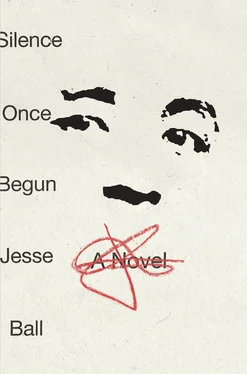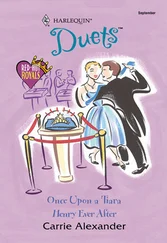I was sure that Kakuzo would want the story to be correct; after all, there was every indication that he was the original architect; it was he who wrote the confession.
So, this is what I did: I arranged with a newspaper friend to print a remembrance article about the Narito Disappearances in a Sakai paper. I purposefully left him completely out of it. A long article about the most important event of his life — and no mention of Sato Kakuzo. My friend was understandably hesitant to print such a thing, but finally he did.
For a week we waited. One day, then another. I grew afraid that he had died, or that he had been living abroad for decades. Or perhaps he simply hadn’t seen that newspaper? Perhaps he hated newspapers. When a week had passed, I felt sure he would never be found.
Yet the ruse worked. A week and a half after the first article, the office of the newspaper received an indignant letter. What fools they were, the letter said, to print absolute fallacies without any reference to the truth. Were they journalists or not? Once upon a time newspapers had had a relationship to truth. Had this commitment been completely effaced? And on and on in this fashion. The letter was signed, Sato Kakuzo, and on the envelope was written a return address.
I contacted him then, and he agreed to meet.
The place of our meeting was a sort of boathouse and cafe at the shore. He showed up very late, more than an hour. I was preparing to leave when a car pulled into the lot. Indeed, it was he. Kakuzo wore an old fisherman’s hat, a tweed jacket, and corduroy trousers. He appeared a perfectly innocuous older man. His English was clear and unaccented. He had brought things with him, things for me. If I were to do the story, he would have me know the whole of it.
This interview was the only time I was able to meet him. However, the materials that he gave me provided many hours of study, so I felt that I had spent a great deal more time with him than I actually ever did. One thing that must be stressed is the immense force of personality possessed by Sato Kakuzo. I left the interview unsurprised that he had made Oda Sotatsu sign the confession. Indeed, he might have managed to convince anyone to do the same.
Interview ( Sato Kakuzo )
[ Int. note . At first we sat at a table by the window, but the position of the sun shifted, and it became too bright, so we were forced partway through to move to another table. Both times Kakuzo chose the chair he wanted and sat in it, without seeing whether I had an opinion on the matter. I suppose, as he was being interviewed, there is a certain justice to that. It was interesting to see that he always chose the seat from which one might observe the door. When I asked him whether I could use my device to record the conversation, he refused. Only after we had spoken for a little while did he relent.]

INT.
So, you had been inspired by the French Situationists? You were inspired by the ’68 riots? That’s what got you into trouble at first in Sakai and led you to return home?
KAKUZO
Do you know the fable of the stonecutter?
INT.
No.
KAKUZO
It is an old fable, Persian, I think. I had read it around that time, and it made me feel, somehow — as though certain things might be possible. I felt that things I had thought should be classed impossible were truly possible, with the very greatest effort.
INT.
What is the fable?
KAKUZO
A king is out riding with his nobles, all ahorse the very best steeds that can be had. They are riding out beyond the city where the king lives. They pass through fields and down road after road. The horse the king is riding is a fine new horse, such a horse as he has never possessed, and so he gives it its head, and the horse carries him farther than he has ever gone. The king and his nobles ride so far and so fast that they become bewildered, but their blood is in their faces and their hearts are beating so tremendously that they want only to course on and on. A wind is blowing and the weather is spinning in the air, clouds turning like looms. The horses trail to a stop, and the company is on a road before a lowly dwelling. It is a stonecutter’s hut. The king dismounts, and goes to the door. He knocks and the door is answered by an old man with pale cruel hands of sinew and bone. The old man welcomes the company and receives them into his hut. Strangely enough, there is a place for everyone. The table is large enough for all. Each lord sits at table, shoulder to shoulder, and the king sits at one end. The stonecutter sits at the other. I will feed you, said the stonecutter, but it will not be anything like what you eat. The nobles groused, saying they would like this or that, saying is there this or that, but the stonecutter looked at them and they looked at his hands, and they fell silent. The king spoke, saying, they were come like beggars, and were glad to be received at all. Such a thing a king had never said. So, the stonecutter went into his larder and brought out a goose that resembled a girl. He brought out a deer that resembled a boy. He brought out bread like the hair of a hundred court ladies, threaded into rope. He brought out honey like the blood of goats. Do not eat this food, the lords said, but the king laughed. The stonecutter watched them speaking, and the king laughed, saying, where you are brought by a swift steed is a place for courage. But the lords said beneath their breath, some steeds are too swift. Then the plates were filled, heaped nearly to the ceiling and passed around, and always the king chose first, and he filled his plate and ate of it, and filled it and ate of it and filled it and ate of it. Never had he tasted such food. And soon they were all fast asleep, and the stonecutter rose from the table. That is the end of the first part.
INT.
What is the second part?
KAKUZO
Do you want to hear it?
INT.
I do.
KAKUZO
The king wakes the next day, and he finds that he is the stonecutter. He sees no lords in his house. There are no horses in his field. There are only the remains of an enormous feast, which ended sometime in the night. He looks down at his hands and he sees how terrifying they are, sees the white bone, the sinew, that which the stone may not resist. But he is a king. He sets out on the road toward his kingdom, and follows the trail of the horses’ hooves. For nineteen days he walks. It takes him nineteen days to travel what on the fastest horses took a single flight of restless speed. Still he perseveres, and on the nineteenth day, he reaches the gates of his city. He presents himself there, and the guards will not let him in. Have you nothing to sell, they ask. Have you no money with which to buy? For what reason do you want to enter this fine city? Do you not know, they asked. Do you not know that this is the richest and wealthiest city in the world? And some fear in his heart keeps the king from revealing himself. I will see, he says, how the land lies. And he goes a short distance into a desolate field, and he finds a stone. He sits by the stone and passes his hands over it. He passes his hands over it again and again, and he knows then things that the stonecutter knows and he breaks the stone and seals it and breaks it and seals it and tears at it as if at a cloth. When he has done, he has made a puzzle of the thinnest weave, a puzzle in stone. He puts it beneath his ragged cloak, and goes back to the gates. There he waits until morning, and when the first guard to wake looks out at the sun, he is there.
You again. Have you nothing to sell? Have you the means to buy? The king lifts the cloak to show the stone puzzle, and the guard’s eyes follow the impossible lines and turns and corners. Round about they go, round about and around and they fall into nothing, into nowhere. Again he tries, again, he can reach nowhere with the puzzle, with his eyes on the puzzle. Very well, he says. You are welcome to the city, and he opens the gate. The king covers his puzzle, and goes then upon the streets of his own city. Never has he seen it so well. The merchants are opening their stalls in the squares and streets. Animals are being fed, watered, slaughtered, skinned, ground, groomed, their manes tied with ribbons. He finds his familiar way to the castle. There is another gate. I will see the king, he says. Anyone has a right, says the guard, to see the king. But it may be the end of you. The guard brushes the king’s hood back and looks upon his face. But he does not see anyone he knows. He has not seen this person before. Good fortune to you, he says, and opens the gate.
Читать дальше













